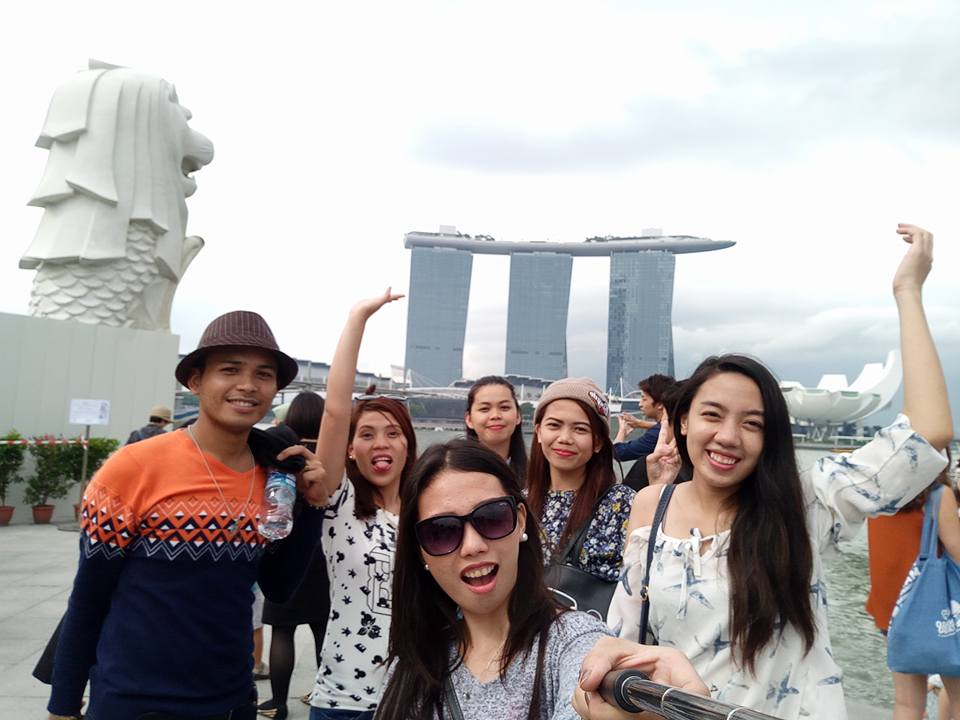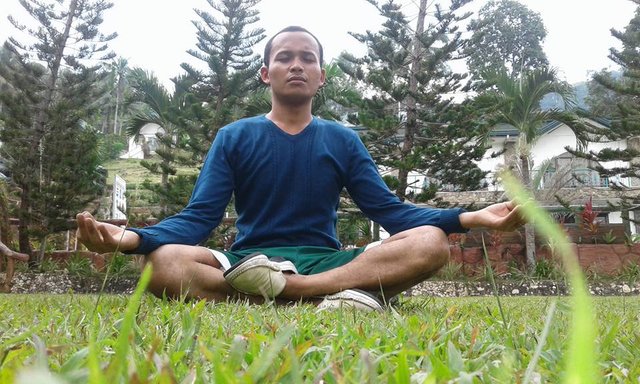REALITY CHECK #2: Where are you in three stages of life?
Soren Kierkegaard believes that there are three stages of existence in which man can choose to live.
These three stages pertain to modes of human existence as human individual in his pursuit for self-fulfillment and meaning of life. Furthermore, according to Kierkegaard, the individual can move from a lower stage to higher stage through a personal act of choice.

@sorenkierkegaard
The Aesthetic stage
Kierkegaard characterizes this stage as a life of an average bored person in despair who is only search for sensual immediacy. He lives in the cellar of sensuality and he avoids making any commitment. The individual begins in his merging in the crowd and does what they do; he reflects their tastes ideas, and prejudices. His whole life is dictated by them.
Kierkegaard posits that aesthetic stage is a stage of life which adheres to the principle that one must enjoy life. He writes,
Here then, we have a life-view which teaches ‘Enjoy Life’, and then expresses again thus; ‘Enjoy yourself: it is you yourself in the enjoyment that you much enjoy
The only goal of life is purely for self-gratification and pleasure. An individual who chooses to live in this stage only indulges himself in all the pleasure and beauty that life has to offer. As such, Kierkegaard considers this stage as the most fragile, the lowest and the least stable among the stages.
However, Kierkegaard strongly argues that there is a point in time that aesthetic person will get bored since his pleasure experience are just transitory. Consequently, this ends up in despair. He writes,
It turns out then that every aesthetic view of life is despair, and that everyone who lives aesthetically is in despair whether he knows it or not. But if one does not know it, and you indeed do, then a hinger form of existence is an inescapable requirement.
Kierkegaard highlights the truth that living this stage of life is intolerable. The individual will only experience dissatisfaction and despair. Since the attitude of life here is fragmented, it cannot lead an individual to live an authentic existence. Thus, there is a need for him to transcend into the higher level the ethical stage.

@sorenkierkegaard
The Ethical Stage
The second level is the ethical stage. Unlike the aesthetic person who has universal standards, but only his or her own taste, the ethical person does recognize and accept rules of conduct that reason formulates. He is consciously takes his place within social institutions and accepts the obligations which flow from them.
He realized the boredom; he forsakes the pleasure and makes commitments.
Thus, the ethical person is quite different from the member of the crowd, he is now self-conscious. The ethical person accepts the limitations that moral responsibility imposes on his life. He lives for the sake of duty, taking an obligation in order to be bound to discharge them. Kierkegaard says,
The ethical way of life consists in more than mere conformity to duty. It must also include the person’s inner passion and earnestness to help others. Otherwise, one simply obeys the letter of the law and ignores the spirit.
This suggests that the individual simply accept the duty without passion and commitment. Kierkegaard says that the ethical stage of life is characterized by the individual’s obedience to the universal. He writes,
The ethical is as such the universal; as the universal it is in turn the disclosed. Seen as the immediate, no more the senate and psychic being, the individual is concealed. So his ethical task is to unwrap himself form his concealment and become disclosed in the universal
Thus, ethical life recognizes the significance of choice. Here one accepts his duty as a moral actor. He takes responsibility, and fulfills his moral obligations.
Kierkegaard clearly contends that in this stage, the individual divest himself from his self-interest and becomes aware of his responsibility, duties, and rules. It is way by which he can establish actively his own identity.
Moreover, Kierkegaard emphasizes that living in this stage is a risky endeavor for it entails acts of heroism. The ethical individual here is being tested, how strong he might be. In the biblical story Abraham commanded by God to kill his son as a sacrifice. Abraham’s heroism lay in his obedience to an individual command of God.

@sorenkierkegaard
Thus, obedience will command him to break a moral law. Ethically speaking, Abraham should be convicted as a murderer. But Kierkegaard emphasizes that ethical is higher than absolute. Abraham can be a hero as the Bibles portrays him, simple from the standpoint of faith. Thus, faith is paradox, that the particular is higher than the universal. Kierkegaard argues that faith cannot be rationally justified. Kierkegaard writes,
Faith must be passionate devotion of oneself; but objective inquiry involves an attitude of detachment. We must therefore give up the search for certainty, embrace the risk, and take a ‘leap’ of faith. Without risk there is no faith. Faith is precisely the contradiction between the infinite passions of the individual.
According to him, the individual can be comparable to a tragic for he “renounces himself express the universal.” One denies himself for the sake of the social virtues. Yet, he finds meaning and fulfillment.
However, Kierkegaard posits that at the certain point an ethical person becomes aware of his inability and insufficiency. He says,
Against God I am always in the wrong. If what you wished what others and you yourself in a sense, might call you duty, if you were not only to forgo your wish but in a sense be unfaithful to your duty, if you lose not merely your joy but honor itself…
Thus, ethical life recognizes the significance of choice. Here one accepts his duty as a moral actor. He takes responsibility, and fulfills his moral obligations.
Kierkegaard clearly contends that in this stage, the individual divest himself from his self-interest and becomes aware of his responsibility, duties, and rules. It is way by which he can establish actively his own identity.
Moreover, Kierkegaard emphasizes that living in this stage is a risky endeavor for it entails acts of heroism. The ethical individual here is being tested, how strong he might be. In the biblical story Abraham commanded by God to kill his son as a sacrifice. Abraham’s heroism lay in his obedience to an individual command of God.
Thus, obedience will command him to break a moral law. Ethically speaking, Abraham should be convicted as a murderer. But Kierkegaard emphasizes that ethical is higher than absolute. Abraham can be a hero as the Bibles portrays him, simple from the standpoint of faith. Thus, faith is paradox, that the particular is higher than the universal. Kierkegaard argues that faith cannot be rationally justified. Kierkegaard writes,
Faith must be passionate devotion of oneself; but objective inquiry involves an attitude of detachment. We must therefore give up the search for certainty, embrace the risk, and take a ‘leap’ of faith. Without risk there is no faith. Faith is precisely the contradiction between the infinite passions of the individual.

@emma (Canada)
According to him, the individual can be comparable to a tragic for he “renounces himself express the universal.” One denies himself for the sake of the social virtues. Yet, he finds meaning and fulfillment.
However, Kierkegaard posits that at the certain point an ethical person becomes aware of his inability and insufficiency. He says,
Against God I am always in the wrong. If what you wished what others and you yourself in a sense, might call you duty, if you were not only to forgo your wish but in a sense be unfaithful to your duty, if you lose not merely your joy but honor itself…
This suggests that one’s own effort to live an ethical life cannot fully actualize or fully achieve his true identity. Thus, according to Kierkegaard there is a need for the individual to transcend the universal, by relating himself to God through an act of faith. However, one’s effort to live an ethical life cannot fully actualized or fully achieve his true identity.
The Religious Stage
Kierkegaard considers the religious stage as the highest among the three stages because this is the stage where the individual comments his life to God. Kierkegaard writes,Kierkegaard considers the religious stage as the highest among the three stages because this is the stage where the individual comments his life to God. Kierkegaard writes,
He who strove with the world became greater by conquering the world, he who strove for himself became great by conquering himself, but he who strove with God became greater than all.
Thus, this stage entails a personal relationship and direct accountability to God after the individual has realized his finiteness and insufficiencies in the previous stages. In the religious stage, “Abraham belongs to faith; he existed not in the ethical sphere, not as a murderer, but as a believer, as a Knight of faith.

@sorenkierkegaard (travel with me Singapore)
Moreover, Kierkegaard regards this stage as eminently paradoxical. In Kierkegaardian terms, faith is a paradox, the paradox that the individual is higher than the universal, and the man of faith acts by virtue of the absurd for it is.
The absolute relationship of the individual to the absolute cannot be easily explained by reason. The individual needs faith. Faith is the expression of this existential transformation of the individual by God. He asserts,
The paradox of faith is that single individual is higher than the universal, that the single individual determines his relationship to the universal through his relationship to the absolute, not his relation to the Absolute through his relation to the universal.
Clearly, Kierkegaard reveals that this stage is characterized by absurdity. It cannot be understood by reason but only by faith. Through faith, the individual realizes that he is higher compared to the universal or the laws and obligations. In addition, he makes use of Abraham as the example of this. He writes,
Abraham represents faith and that faith finds it proper expression in him whose life is not the most paradoxical that is simply it simply it cannot be though. He acts on the strength off the absurd. For it is the absurd that as a single universal he is higher than the universal.
Kierkegaard contends that, because of his faith Abraham abandons his duty as a father to his child Isaac. “Kierkegaard put Abraham was in absolute relation to the absolute. Thus, his action was dictated not by universal, but by the Deity itself and Abraham acted not to realize the universal duty of love for his son, but for God and as under His command.”

@sorenkierkegaard (Yoga Meditation)
In this situation Kierkegaard refers to as the theological suspension. Instead, he prefers to obey the command given by God. With his exemplary act Kierkegaard honors Abraham as the “Knight of Faith.” Lastly, for Kierkegaard, this stage finds its highest expression in Christianity. Kierkegaard suggest, the Christian is in the religious sphere is a Knight of faith, where the individual is higher than the universal.
It is here we can see the authentic individual. Thus, Kierkegaard used the Biblical (or mythological) figure of Abraham to exemplify authentic faith. According to him, every Christian is entitled to be like Christ. It is God’s relationship that makes a human being human. Thus, to be authentic man should in relation to the absolute. The relationship between God and each individual is a unique and subjective experience. Kierkegaard says, “God is the subject, therefore exists only for the subjectivity in inwardness.” In arriving authentic existence, it is a matter of faith and commitment, and a continuous process of choice.
Sincerely yours
@sorenkierkegaard